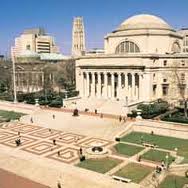What is the value of an executive MBA? According to a study by the Executive MBA Council, graduates of EMBA Programs realize a significant return on their investment.
As reported in the Financial Times, the Council’s exit survey of 3,212 recent graduates from 102 EMBA programs found that:
- The average EMBA student’s total compensation (salary + bonus) grew by 16.3%, or $22,100, over the course of the program. The average student earned $135,323 per year when entering the executive MBA program, and saw their comp package grow to $157,423 by graduation.
- All of these figures – starting salary, salary on graduation, and percentage growth – have increased since the 2010 survey. In that survey, EMBA students reported that their total comp grew from $127,955 to $142,534 during the program. That is a difference of 11.4%, or $14,579, per year.
Given that the average Executive MBA program now has a total cost of $73,120, according to the Council’s website, this suggests that for 2011 graduates, the EMBA program will pay for itself in approximately 3-1/2 years – providing an attractive return on investment.
Of course, in true analytical MBA spirit, it is important to take these figures with a grain of salt. Correlation is not the same as causation, and without having a control group for comparison, it is difficult to say how much of this income gain was due to the EMBA program itself, as opposed to an improving economy and the generally strong work performance of EMBA-caliber employees. Nonetheless, given that 67% of EMBA students receive some form of employer sponsorship – including the 27% of students who receive full sponsorship – EMBA programs do seem to provide a positive ROI.
In addition to the monetary benefits, the study found that 37% of students were promoted while studying in the EMBA program, and 68% received new responsibilities.

